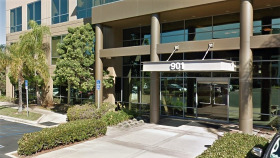Seeking help for addiction is a big step, and choosing the right place to recover matters. If you’re planning a stay at an Arizona treatment center, it’s natural to wonder what each day will look like, who you’ll meet, and how you’ll be supported. Understanding the structure and experience can make the decision easier and help you feel more prepared.
A Supportive, Welcoming Environment
Many people feel anxious when they arrive at a treatment arizona treatment center, but the environment is built to be calm and supportive. Staff help you settle in with an intake session that reviews your medical and personal history, so your care is tailored to your needs. Nurses and therapists are available around the clock to support your recovery and ensure you feel safe and understood.
A Structured Daily Schedule
Routine plays a major role in recovery. Most treatment programs follow a structured daily plan that provides balance and reduces stress. Here is what a typical day might include:
- Morning: Healthy breakfast followed by group therapy or mindfulness sessions.
- Midday: One-on-one counseling, educational workshops, or family therapy if applicable.
- Afternoon: Recreational therapy such as yoga, art, or exercise. These activities help build coping skills.
- Evening: Group reflection or support meetings such as 12-step programs.
This routine helps create a rhythm that supports both physical healing and emotional clarity. Time for rest and self-reflection is also included.
Therapy That Addresses the Root Cause
Therapy is a major part of any rehab program. Whether you are dealing with substance use, trauma, or mental health challenges, licensed professionals will guide you through effective therapy methods. These may include:
- Cognitive Behavioral Therapy (CBT), which helps change harmful thought patterns
- Dialectical Behavior Therapy (DBT), which focuses on managing emotions and relationships
- Motivational Interviewing (MI), which helps encourage lasting behavior change
The goal is to address both the addiction and the emotional or psychological issues that may be connected to it.
Medical Support and Detox (If Needed)
If detox is required, this is usually the first step. Medical professionals will monitor you closely and manage withdrawal symptoms to keep you safe and comfortable. After detox, you can move into the residential or outpatient program depending on your needs.
Peer Support and Community
Being with others who are going through similar struggles can be very helpful. Most treatment centers offer group therapy, support groups, and shared activities to build connection and trust. You will learn from others, share your own story, and discover that you are not alone.
Aftercare Planning
Recovery does not stop when your stay ends. A good center will help you build a plan for life after treatment. This may include:
- Continued outpatient therapy
- Support group referrals
- Relapse prevention techniques
- Help with finding sober living options
Aftercare helps you maintain the progress you have made during treatment.
Conclusion
treatment center in Arizona you are surrounded by professionals and peers who want to help you succeed. You can expect a calm setting, a clear routine, strong therapy, and support that lasts even after you leave. This experience can help you take back control of your life, one step at a time.

